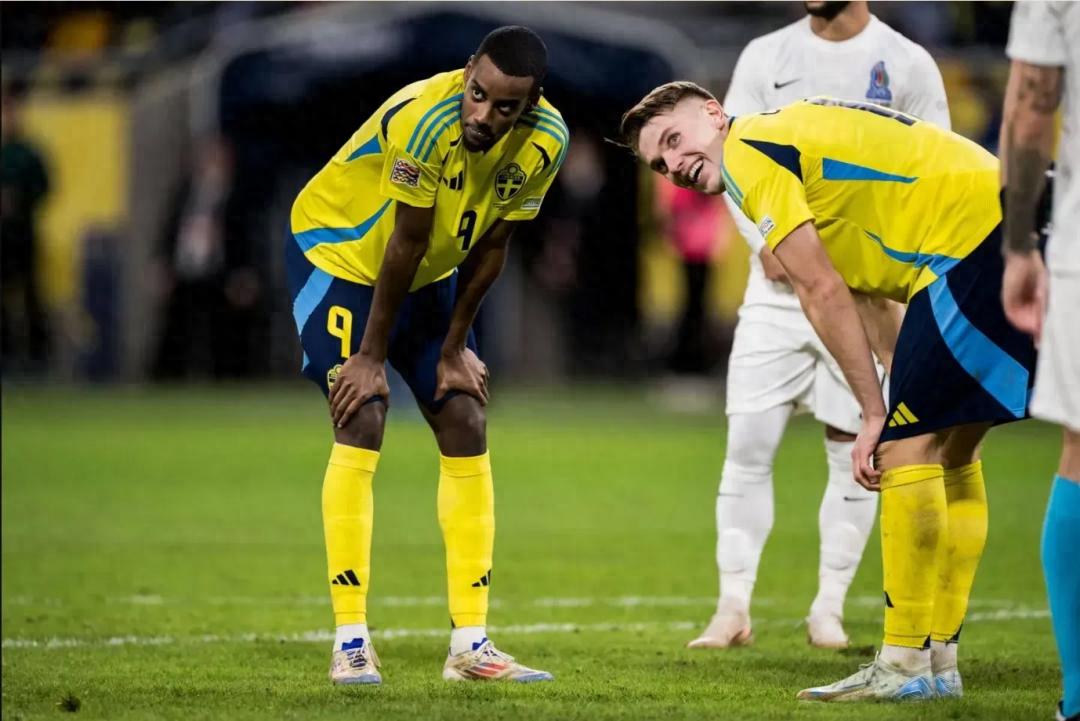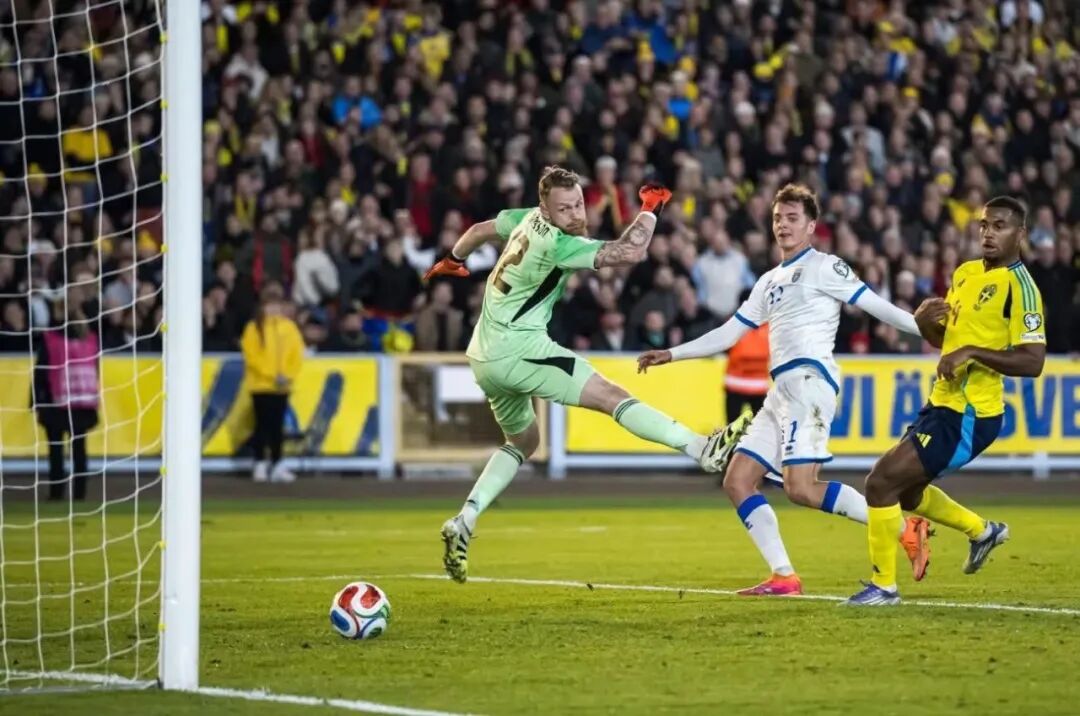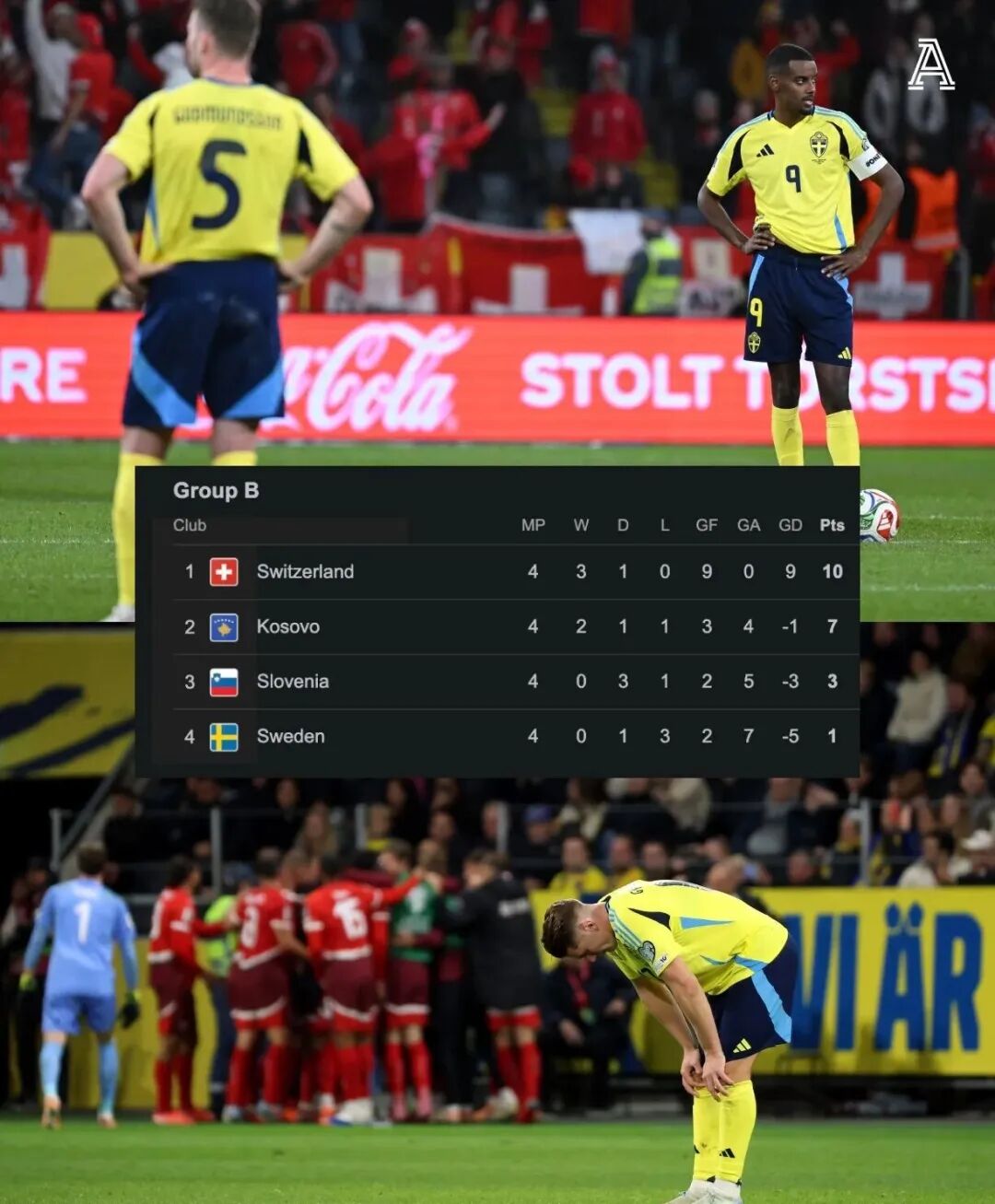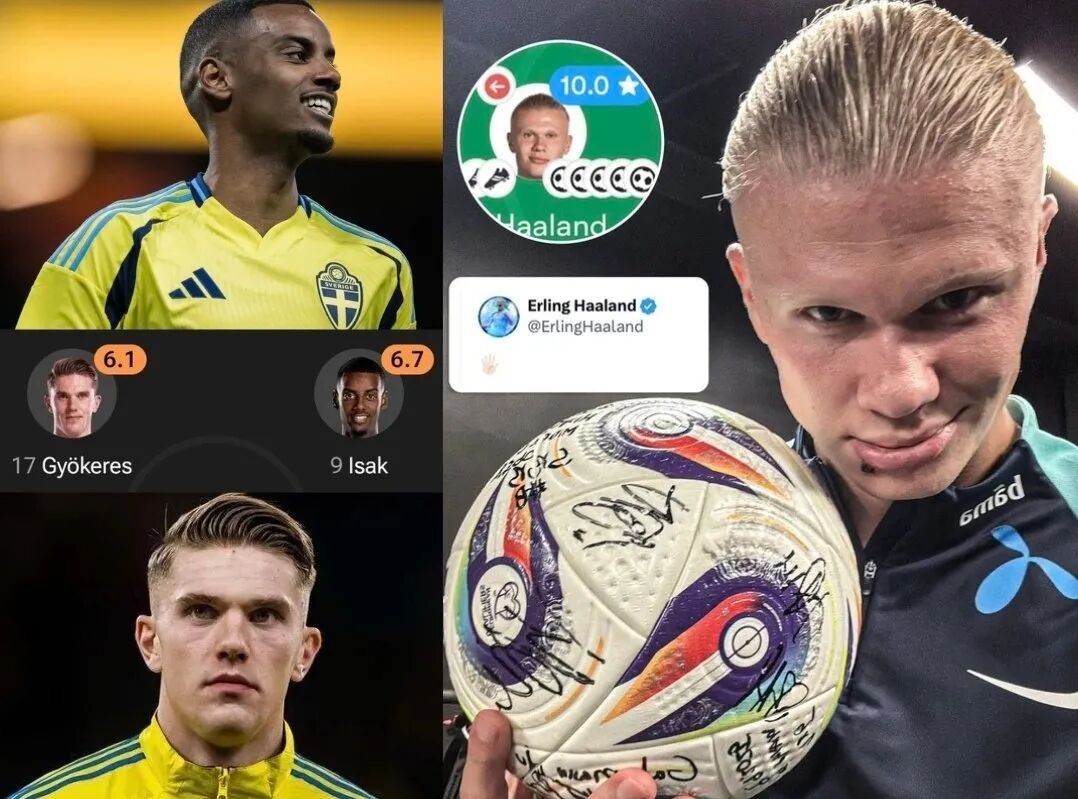460 million euros valuation but suffering three consecutive defeats in World Cup qualifiers, Sweden humiliatingly at the bottom, two star strikers disgraced

Written by Han Bing The entire squad is valued at 460 million euros, ranking 9th in Europe, with star forwards Isak (120 million) and Jökels (75 million)... Despite this impressive lineup, Sweden endured three consecutive defeats in the World Cup qualifiers. Following a 0-1 home loss to Kosovo on October 13, they have collected just 1 point from 4 games, ruling out any chance of finishing in the group’s top two. Although they can still enter the playoff via the UEFA Nations League, the poor form leaves Swedish fans and media with little hope.
This summer, Isak joined Liverpool for a record combined transfer fee of 145 million plus 11.5 million in add-ons, setting records for Liverpool, the Premier League, and Swedish players. Meanwhile, Jökels moved to Arsenal for 63.5 million plus 10 million in fees, pushing Swedish players’ market value to unprecedented heights. In October, Sweden’s team value reached 460 million euros, surpassing Norway (with Haaland and Sæter) and just below Belgium, maintaining a leading position in Europe’s second tier national teams.
Yet, the Swedish team, with two star forwards valued and transferred for a combined 200 million euros, shamefully finished last in the World Cup qualifying group with 1 draw and 3 losses. Losing at home to world No.17 Switzerland was understandable, but being twice defeated by Kosovo, ranked 91st, is utterly unacceptable. On October 13 in Gothenburg, Sweden’s starting eleven featuring Isak and Jökels had a combined value of 326 million euros—8.6 times that of Kosovo’s 43.8 million—but still suffered a third consecutive defeat.

Sweden dominated possession (67%), shots (13 to 7), shots on target (6 to 4), and corners (12 to 0), yet failed to break down Kosovo’s defense. Instead, in the 32nd minute of the first half, Kosovo’s forward Asllani, valued at only 8 million, scored the winning goal. Swedish coach Thomassen made three substitutions at halftime, bringing on Ilanga, who joined Newcastle for 61.5 million this summer, and Barcelona’s 19-year-old prodigy Badji (valued at 10 million), but it made no difference.
Isak, valued and transferred for over 100 million euros, along with Jökels, last season’s top scorer in the Portuguese league, Nations League, and Europe’s three major golden boots, performed terribly throughout the match. Isak had six shots with two on target, Jökels had two shots with one on target, both failing to make an impact. Each managed only one dribble and lost possession 12 times. These two star forwards have now gone three consecutive games without goals or assists, while Sweden has also failed to score in these matches, suffering three straight defeats and remaining winless in four games with just 1 point at the bottom of the group. This marks Sweden’s worst streak since the 1934 World Cup, the first time in 36 World Cup and European Championship qualifying campaigns that they have gone four matches without a win.
With the two star forwards leading the attack, Sweden has talent but lacks teamwork, showing almost no decent cooperation and weak creativity in midfield. The transfer turmoil involving the two strikers over the summer severely affected their form. From June last year to June this year, Isak scored 6 goals and provided 2 assists in 8 matches for Sweden, while Jökels netted 9 goals and 3 assists in 6 Nations League games, a stark contrast to their recent poor performances. Although Sweden has secured playoff qualification through Nations League results, their immediate priority is to beat Slovenia at home in November to avoid the historic disgrace of finishing last in the qualifying group.

Coach Thomassen faced intense criticism from Swedish media and social platforms after the match but refused to resign, instead shifting the blame to the entire team: “We conceded goals we shouldn’t have and seemed to forget how to score. The poor performance is everyone’s responsibility.” When asked if it is the coach’s duty to ensure the team plays up to standard, Thomassen surprisingly replied, “It is my responsibility, but I cannot play on the field for the players.”
As a traditional second-tier European team, Sweden has only qualified once in the last four World Cups, in 2018. This time, with two matches remaining in the qualifiers, they have already set their worst qualifying record in history. In the previous World Cup qualifiers, Sweden won 5 and lost 3 in 8 games, reaching the playoffs but were eliminated by Poland led by Lewandowski. Two years ago, in the European Championship qualifiers, Sweden finished third in their group and failed to advance. If their performance continues to decline and they only reach the playoffs, they will set a new low by qualifying for only one World Cup in five consecutive tournaments and miss the final tournament for three straight times for the first time since 1984-1990.
The skyrocketing value and transfer fees of Swedish stars have ironically coincided with a freefall in the national team’s performance, a stark and bitter contrast.



Wonderfulshortvideo
User PlaymakerHub has posted a video.








 Links
Links
 Contact
Contact
 App
App


